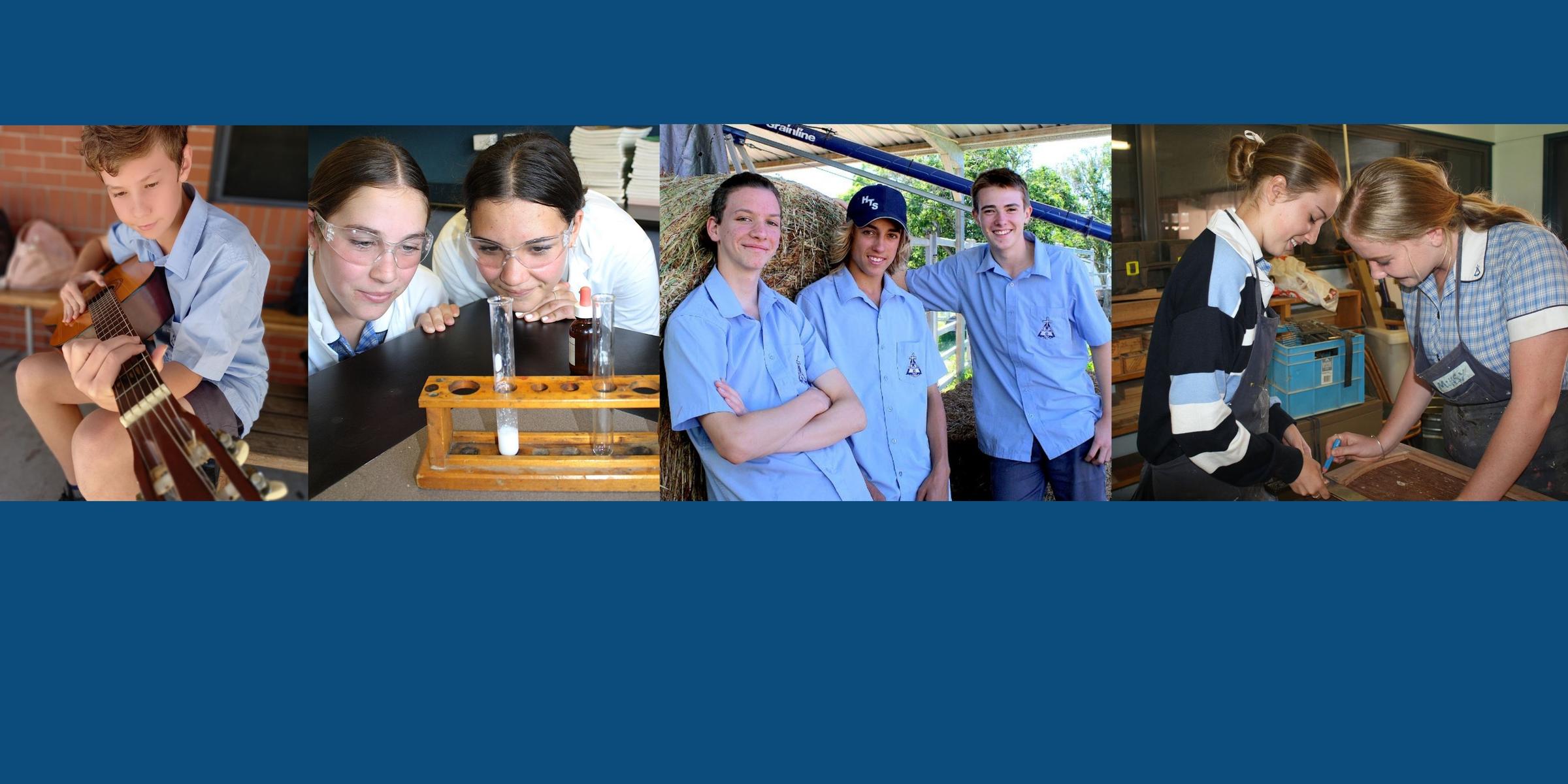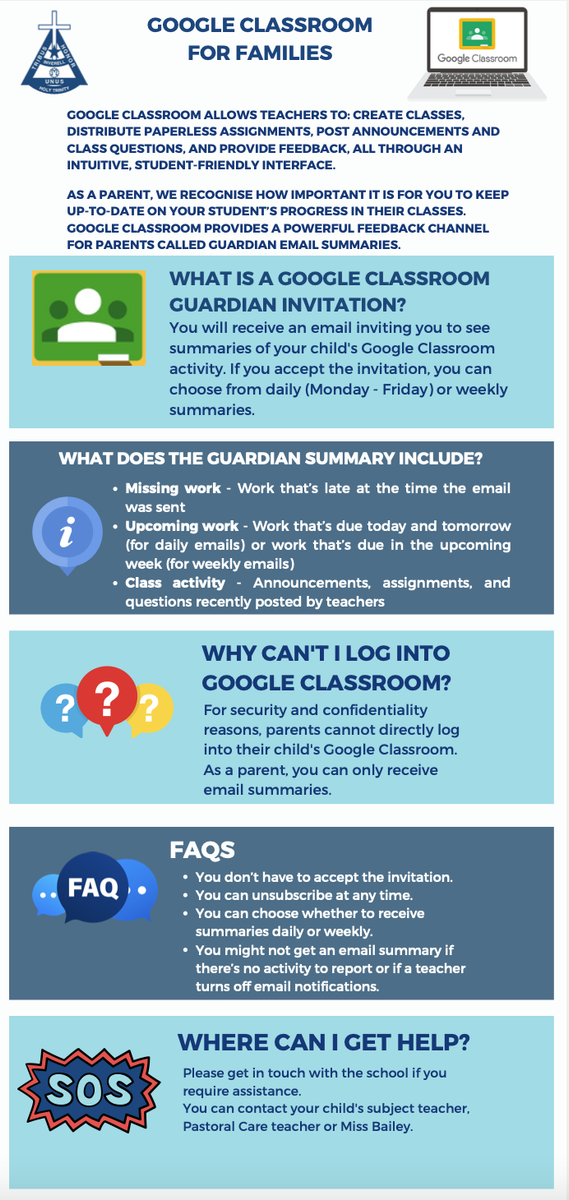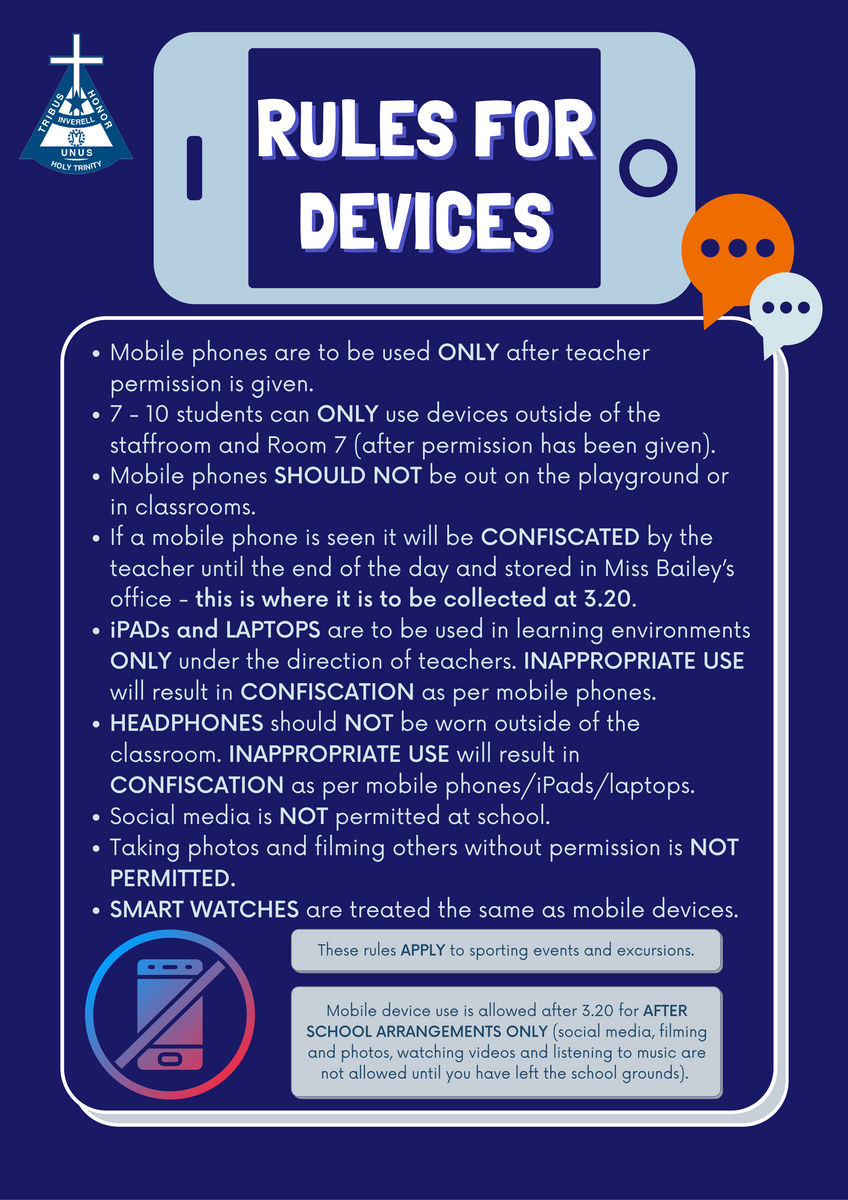SECONDARY NEWS
From the Assistant Principal
Miss Kim Bailey
kbailey@arm.catholic.edu.au

SECONDARY NEWS
From the Assistant Principal
Miss Kim Bailey
kbailey@arm.catholic.edu.au
Maryann Otieno
Good luck to Maryann Otieno who will represent Holy Trinity at the NSW Legislative Council Public Speaking Competition and Youth Forum in Armidale on Wednesday.
As part of the NSW Parliament's Regional Roadshow celebrating the bicentenary of the NSW Legislative Council, a public speaking competition for leaders from Years 10 -12 will be held. Maryann will deliver a prepared speech on the theme 'Actions Speak Louder Than Words'. This will be followed by a Youth Forum, which will allow students to discuss issues such as effective leadership, democratic institutions, and their ideas and vision for the future.
Elevate Education will return next Monday to deliver study skills sessions to Years 9 & 10. The focus areas will be Student Elevation and Time Management.
Year 10 will begin their Transition to Years 11 and 12 next term. Careers Advisors from Inverell High (Mr Peter Dal Santo) and Macintyre High (Mrs Deb Snaith) will visit Holy Trinity next term. Students will also visit both schools as part of the Transition process. The following dates have been set.
Macintyre High School
Inverell High School
As part of their PDHPE unit on Respectful Relationships, Year 10 students will attend the LoveBites program run by Rural Outreach and Support Services.
Love Bites aims to provide young people with a safe environment to examine, discuss, and explore respectful relationships. All Love Bites programming takes a strength-based approach and views young people as active participants who can make choices for themselves and their relationships when supported with information and opportunities for skill development.
The program will be conducted at the United Church Hall, Rivers St, Inverell, on Thursday 25 July. The students will walk down and back from the school to attend. During the day, Mrs East and Mr Uebergang will accompany the students. Students are encouraged to wear a hat and sunscreen and bring a water bottle. Bring money to purchase lunch or supply your own food.
Please consent via Compass.
Procrastination is putting off a task that you know you have to do, even though you know that it will probably be worse for you in the long run. For example, when you procrastinate about starting an assignment, it doesn’t make the assignment go away or the deadline change; it just gives you less time to finish the work. To manage this, try the following:
Maybe you are an elite athlete? Or a dedicated performer? Or someone with many talents across many different areas and doesn’t want to give up any of your activities? No matter the reason, the bottom line is you are time-poor. You struggle to fit in everything you need to do for school, because of all of the other commitments in your life. The bad news is there is no magic solution that will easily fix this issue for you. You cannot create more time. The good news is that there are things you can do to make more efficient use of the time you have.
1. Don’t waste time in any of your classes at school. Make the most of every moment, so you have less to do at home, and set up a buddy system in case you miss any lessons.
2. Prune your activities and see if there is anything you can cut to reduce the pressure.
3. Make a timetable so you can schedule in everything that you need to do and want to do.
4. Use all little pockets of time. If you are waiting before training, then use that time to complete some homework.
5. Always prioritise before you start work to ensure that the most important and urgent work is completed first.
6. If you are too tired when you get home from training, it may be better to get to bed early, get up a bit earlier in the morning when you are fresh, and do your work then.
7. You may need to sacrifice an occasional lunchtime when you know you will be too busy that night.
8. Let go of perfectionism. It may not be possible to do everything as fully as you would like. Take smart shortcuts when you can.
9. Use any big blocks of time to tackle the time-consuming tasks that you haven’t had time for.
10. Some work like study notes, assessments or major works may be able to be left to the holidays.
Remember to be kind to yourself. It isn't easy to have enough time to excel in every aspect of your life! All you can do is make good choices with the time you have, make the most of that time, and still try to get the best results you can, given the time constraints you are working under.




Students are not permitted to use their devices unless instructed by a teacher. This includes both the classroom and the playground. The students are aware of this policy and receive constant reminders in Pastoral Care and their teaching classes. There are also many posters displayed all around the school.
If a student needs to use their device, they must first seek permission from a teacher and use it in an area designated by the teacher. This is usually under their direct supervision or outside the Secondary staffroom.
If students cannot follow this policy, their phones are confiscated and placed securely in Miss Bailey's office, where they are collected by the student at the end of the school day.
Teachers record each time a device is confiscated. After it is confiscated for a second time, it remains at school until it can be collected by a parent or carer.
If you have any questions or concerns about your child's learning or wellbeing, please contact Miss Bailey, your child's Pastoral Care teacher or their subject teacher. We are only too happy to assist.
Year 7:
7E - Mr Peter Ehsman
7J – Mr Jack Jeffery
7K - Miss Kristina Majetic
7M – Mrs Veronica McCormick
Year 8:
8G - Mr Anthony Gaias
8M - Mrs Christine McLachlan
8T - Mrs Kathy Townsend
8W - Mr Sam White
Year 9:
9C – Miss Claudia Cush
9E - Mrs Angela East
9U - Mr Uebergang
Year 10:
10B - Miss Kim Bailey
10K - Mr David Koch
Students and parents are encouraged to approach the relevant Pastoral Care teacher if they need assistance.
Stage Leaders
Stage 4 - Mr Anthony Gaias
Stage 5 - Mrs Angela East
Miss Kim Bailey
Miss Claudia Cush
Mrs Claudia Dolbel
Mrs Angela East
Mr Peter Ehsman
Mr Anthony Gaias
Miss Alana Goldman
Mrs Mary-Jane Guest
Mrs Malynda Hiscock
Mr Jack Jeffery
Mr David Koch
Miss Kristina Majetic
Mrs Veronica McCormick
Ms Christine McLachlan
cmclachlan@arm.catholic.edu.au
Mr Matthew Pye
Mrs Jane Taylor
Mrs Katherine Townsend
Mr Blake Uebergang
Mrs Carrie Watchirs
Mr Sam White
Staff can be contacted directly using the email address above or via the Compass portal.